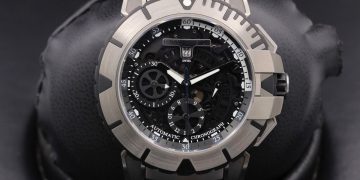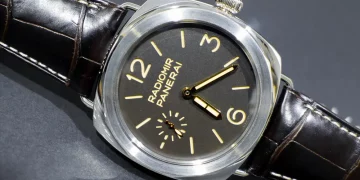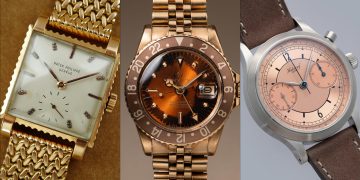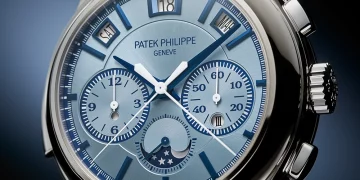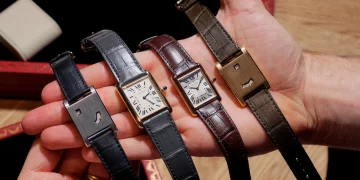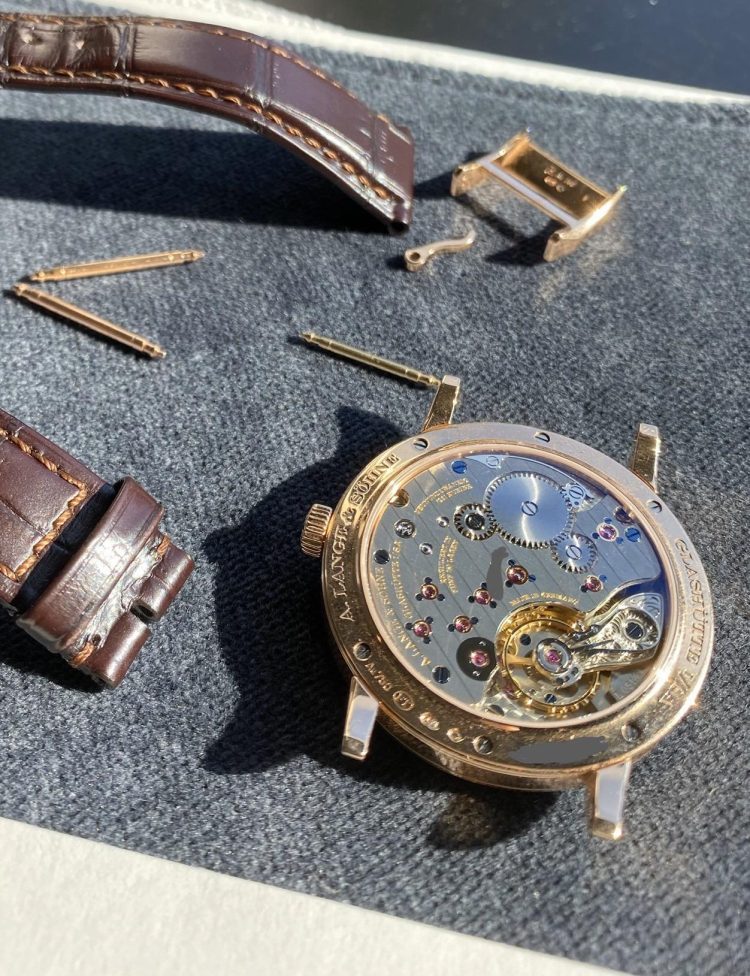Introduction:
A watch, whether it’s a luxurious mechanical masterpiece or a reliable quartz timepiece, is an investment in both function and craftsmanship. As with any precision instrument, a watch needs regular care and attention to ensure that it continues to perform at its best. Just as we take our cars for regular check-ups to maintain their functionality, watches also require periodic maintenance to function optimally and maintain their longevity.
In this article, we will explore whether regular maintenance can truly extend the lifespan of a watch, looking at the different components of a watch, the significance of routine servicing, and the impact that such maintenance has on a watch’s overall durability and performance.
1. Understanding the Components of a Watch
Before delving into the benefits of regular maintenance, it is essential to understand the core components of a watch and why they need attention over time. Whether mechanical or quartz, watches contain various intricate parts that work together to keep time accurately.
1.1 Mechanical Watches
Mechanical watches, which operate using a series of gears, springs, and a balance wheel, are highly delicate and require proper care to ensure they keep functioning smoothly. Key components that benefit from regular maintenance include:
- Movement (Caliber): The movement is the heart of the watch and consists of tiny gears and springs. Over time, the oil used to lubricate these parts can dry out, leading to friction and potential damage. Regular servicing ensures that the movement continues to operate without unnecessary wear.
- Escapement and Balance Wheel: These components are crucial for regulating the timekeeping function. Any wear or lack of lubrication can cause inaccuracies and reduce the lifespan of the movement.
- Mainspring: This is the energy source for a mechanical watch. Over time, the mainspring may lose its ability to store energy or may become too tight, affecting the movement’s performance.
1.2 Quartz Watches
Quartz watches are generally more accurate and require less maintenance than mechanical watches. However, they still need occasional care to ensure longevity:
- Battery: The most common issue with quartz watches is battery failure. Replacing the battery on time prevents damage to the watch movement or leakage from a worn-out battery.
- Seals and Gaskets: Quartz watches often have water resistance. The gaskets and seals that ensure this feature can wear down over time, allowing moisture to enter the watch. Regular maintenance includes checking these seals and replacing them if necessary.
- Movement: While quartz movements are more reliable and require less servicing, the motor and gears can still experience wear if not properly maintained, leading to performance issues.
2. The Role of Regular Maintenance
2.1 Preventing Damage and Wear
One of the primary benefits of regular maintenance is that it helps to prevent the long-term damage caused by wear and tear. With mechanical watches, the oils used to lubricate various moving parts naturally degrade over time. Without routine servicing, friction between these parts can lead to premature wear, causing the watch to lose accuracy or even break down entirely.
Servicing a mechanical watch ensures that the oils are replenished and that the components are cleaned of any dirt or debris. This also allows technicians to spot early signs of wear, such as a stretched mainspring or an issue with the escapement, which could lead to costly repairs if left unchecked.
For quartz watches, regular maintenance ensures that the battery is replaced on time and that the watch’s water resistance is maintained by checking the seals and gaskets. Neglecting these aspects could lead to internal damage caused by water ingress, which might render the watch unusable.
2.2 Extending Accuracy and Performance
Watches, especially mechanical ones, rely on precision for accurate timekeeping. Over time, components like the escapement and balance wheel can lose their ability to function properly due to dust, dirt, or worn-out lubricants. Without regular cleaning and lubrication, the watch can begin to lose accuracy.
Routine servicing helps ensure that the watch is cleaned thoroughly, lubricated correctly, and adjusted for optimal performance. For instance, the watch’s timekeeping can be fine-tuned during a service to bring it closer to its factory specifications.
Regular maintenance of the movement also keeps the parts running smoothly, which means that the watch will continue to perform at a high level for years, even decades. Without proper maintenance, the watch could experience inaccuracies or even stop functioning completely.
2.3 Enhancing Durability
Watches are exposed to a variety of environmental factors that can affect their performance and lifespan. Moisture, dust, temperature changes, and shocks can all take a toll on a watch, especially its movement. Regular maintenance ensures that the water resistance and shock resistance are intact, and that any potential damage is addressed promptly.
For example, if the seals on a watch are not maintained or replaced regularly, moisture can seep into the watch and cause internal rusting or damage. A watchmaker can check these seals during a routine service and replace them if necessary, helping to prevent irreversible damage.
2.4 Increasing Resale Value
For luxury watch collectors, resale value is often an important factor in the purchase decision. A well-maintained watch, with a documented history of servicing, typically holds its value better than one that has been neglected. Watches that have been regularly serviced are more likely to continue functioning perfectly for many years and remain in good cosmetic condition.
Brands like Rolex, Patek Philippe, and Audemars Piguet emphasize the importance of regular servicing, as it can significantly influence the long-term value of their timepieces. Regular maintenance helps preserve the watch’s aesthetic integrity and mechanical accuracy, ensuring that it remains in top condition for future buyers, if reselling is a consideration.

3. The Consequences of Neglecting Maintenance
3.1 Loss of Precision
One of the most noticeable consequences of neglecting regular maintenance is the loss of timekeeping accuracy. In mechanical watches, this can happen when the movement becomes gummed up with old lubricant or dust, preventing the parts from functioning properly. Over time, the watch will lose accuracy, which is especially problematic for timepieces that are prized for their precision.
Quartz watches, while more reliable in terms of accuracy, can also experience timekeeping issues if their batteries are not replaced regularly or if the internal components become damaged by prolonged exposure to moisture or dirt.
3.2 Reduced Longevity
Neglecting maintenance can lead to a shorter lifespan for your watch. For mechanical watches, the movement relies on delicate components that need periodic adjustments and cleaning to ensure that they do not suffer excessive wear. The buildup of dirt, lack of lubrication, and mechanical stresses can gradually degrade these parts, causing irreversible damage and rendering the watch unrepairable.
Similarly, water-resistant watches that are not serviced regularly can lose their ability to protect against moisture, leading to internal corrosion and other issues. This can dramatically reduce the lifespan of the watch.
3.3 Increased Repair Costs
When regular maintenance is skipped, issues that could have been caught early on can develop into more serious problems. A worn-out mainspring, for example, could eventually cause damage to the entire movement if left unaddressed. Small issues like a cracked crystal or a misaligned bezel can turn into larger, more costly repairs if they are not dealt with promptly.
Regular servicing ensures that any minor issues are addressed before they become significant problems, ultimately saving the owner from expensive repairs or having to replace the entire watch.
4. Best Practices for Watch Maintenance
4.1 Regular Servicing Intervals
For mechanical watches, a typical service interval is every 3 to 5 years. This allows the watchmaker to check the lubrication, clean the movement, and adjust the timekeeping. For quartz watches, maintenance is usually less frequent, with the primary focus being on battery replacement and checking the water resistance seals.
4.2 Proper Storage
In addition to regular servicing, storing a watch correctly can also prolong its lifespan. Watches should be kept in a safe, dry place, away from extreme temperature changes or humidity. For mechanical watches, using a watch winder can help maintain the movement’s accuracy if the watch is not worn regularly.
4.3 Professional Care
It’s essential to have a professional watchmaker perform maintenance on high-end or complicated timepieces. While some basic tasks (like changing a battery or adjusting the time) can be done at home, servicing a watch’s movement, cleaning the parts, and replacing worn seals should be left to the experts.
5. Conclusion: The Importance of Regular Maintenance
Regular maintenance is crucial for extending the lifespan of a watch. Whether mechanical or quartz, watches are intricate machines that require periodic attention to function optimally and last for decades. Maintenance helps to ensure the accuracy, durability, and performance of the watch, preventing damage and ensuring that it continues to run smoothly. Furthermore, regular servicing enhances the overall value of the watch, making it a worthwhile investment for those looking to preserve their timepiece for future generations.
In conclusion, proper care, attention, and routine servicing are essential for keeping a watch in top condition and ensuring that it serves you well for years to come. By making maintenance a priority, you can significantly extend the lifespan of your watch and preserve its beauty, accuracy, and functionality for many years to come.



